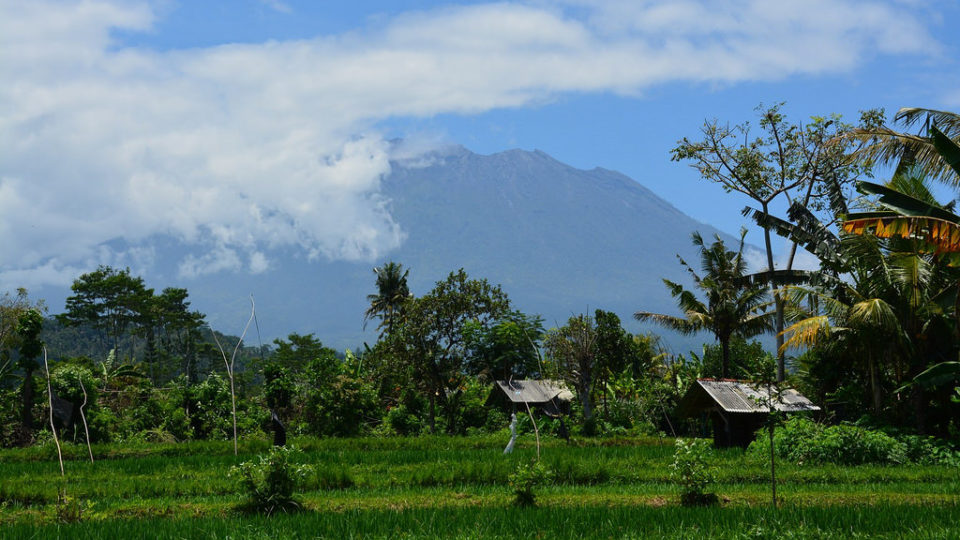After months of rumbling, Bali volcano Mount Agung has finally quieted down enough for Indonesia’s volcanology center to downgrade its alert status from the highest level on Saturday, allowing thousands of evacuees to return home.
But many local residents, who have been displaced by an eruption threat for months, are choosing to stay away from Mount Agung for the time being, instead of celebrating and running back home.
Because while the Volcanology and Geological Disaster Mitigation Center PVMBG has said that it’s now safe to resume normal activities outside of a four kilometer radius from the volcano’s crater (while the previous radius had been set at six kilometers), some villagers would rather get the green light from their village elders instead of the volcanology center.
“I am still waiting for instructions from the village head to go home,” Kadek Sumiati, an evacuee from Kesimpar Village, told Antara Bali on Sunday
Sumiati says she will stay in the temporary evacuation post in Rendang, Karangasem–not for fear of getting obliterated by an explosive eruption from Mount Agung, but rather because if the volcano did pose some sort of threat or any other emergency came up, the road conditions would not allow for a quick getaway.
In the past several months during the rainy season in Bali, lahars formed from Agung’s slopes: mud flows collecting volcanic ash and other debris that wrought havoc on the roads.
“If there is an emergency again, then it would only prevent us from saving ourselves as quickly as possible,” Sumiati said.
Other local residents also remarked on damage to the roads.
Wayan Nada admitted he was much more concerned about the condition of the roads than Mount Agung—even though PVMBG says they are keeping Agung on the level III “standby” alert there is still a small chance of another eruption that would fall low on the Volcanic Explosivity Index (VEI).
“The road is full of holes. So, you’ve got to go slowly if you’re riding a motorcycle. So, if there were another eruption, I’m worried I would not be able to save myself with the road conditions like that,” Nada said.
Meanwhile, Kesimpar traditional village leader I Nengah Sama said that he and his residents will stay evacuated and has asked that the government immediately repair the roads.
“With this decline in status, I also expect the government to immediately complete the asphalting of roads in our region. For most, it would only take about two weeks,” he said.
Sama says he is insisting that his residents not be pressured into returning home before the roads are repaired.
“Residents will be more calm back home if the roads have been fixed. If something happens, it will be easy to evacuate,” he said.




